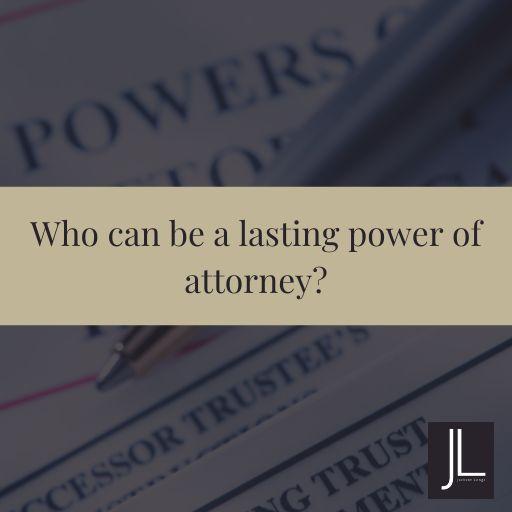
A lasting power of attorney is a legal document allowing someone to make decisions on your behalf, should you lack the capacity to do so yourself or no longer want to.
There are many reasons why you might want (or need) someone to make decisions for you, including:
- Temporarily: if you are in hospital and need assistance handling finances such as paying bills.
- Long-term: if you have been diagnosed with dementia and are likely to lose mental capacity, you will want to assign a power of attorney to deal with your future affairs.
Different types of power of attorney
There are a few differing types of mental capacity. The one best suited to you will depend on your circumstances and what you want the person to have access to deciding. It is possible to set up more than one if suitable.
- Ordinary power of attorney
Also known as a general power of attorney, an ordinary power of attorney covers decisions about financial affairs and is only valid whilst you have mental capacity. As previously mentioned, it is suitable as a temporary cover, for example, if you are taken to hospital.
- Lasting power of attorney
A lasting power of attorney comes into effect if you lose mental capacity or no longer want to make decisions for yourself. When planning for the future, you should set up an LPA to ensure you are covered by a person you trust.
- Enduring power of attorney
It is no longer to make an enduring power of attorney. LPAs replaced EPAs in October 2007. Do not worry – it is still valid if you made an EPA before October 2007. If you are unsure, please check with a trusted solicitor.
An EPA covers property and financial affairs decisions and comes into effect if mental capacity is lost or you want someone to act on your behalf.
Talk to our Power of Attorney Solicitors in Richmond Upon Thames, Surrey. Call us on 0208 332 2069 or fill in this contact form.
Who can be a lasting power of attorney?
You can assign anyone as your attorney, provided the person is 18 or older. It is possible to have more than one attorney; however, it is suggested that you have no more than four to avoid any conflicts of interest where possible.
In the case of a property and affairs LPA, the person you want to be the attorney cannot be bankrupt or subject to a ‘debt relief order’.
The person you choose as your attorney should be someone who knows you well, you trust and is reliable.
If you are uncertain of who you want to be your attorney, it is possible to ask a professional, such as a solicitor or accountant – this is especially suitable in cases of property and affairs LPAs. A professional will charge for their time, and the charges will vary.
What does an attorney do?
The duties of a power of attorney include:
- Acting in your best interests.
- Consider your feelings to ensure they are acting. according to your wishes
- Keep you involved in the decisions made, as far as is suitable depending on mental capacity.
- Keep records and ensure money and property are kept separate from their own.
- DO NOT take advantage of their position to benefit themselves.
Solicitor for LPA in Richmond-Upon-Thames
At Jackson Longe Solicitors, our team is on hand to support you through the process of assigning your attorney, ensuring that the document is optimised for your circumstances and finalising your attorney.
Please get in touch with us today. Call Jackson Longe on 0208 332 2069, email info@jacksonlonge.co.uk or fill in this contact form.